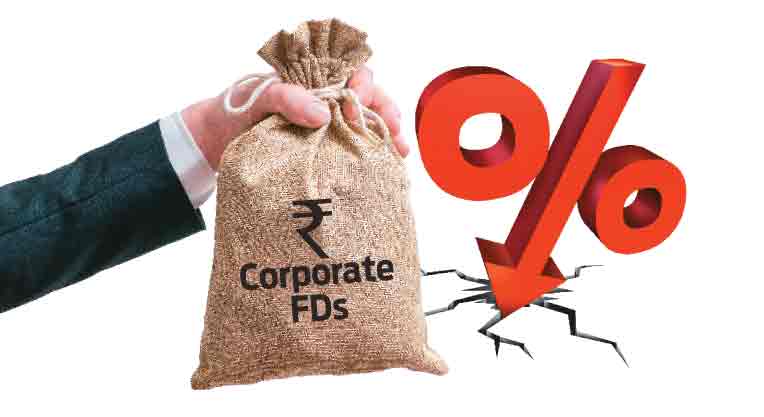While bank fixed deposits are a very common avenue of investment, corporate fixed deposits or company deposits are the slightly less preferred cousin.
Usually, when any corporate has an immediate cash requirement, they offer fixed deposits. They offer attractive interest rates which are almost 100-200 basis points higher than bank fixed deposits.
Over the years, company fixed deposits have lost their popularity. That is mostly because its rate of interest, which was initially as high as 10 to 11 per cent, has come down significantly. And, investors looking for secure products have shifted to debt funds because they offer more liquidity and tax efficiency. However, during the recent market corrections, some investors invested in company deposits looking for safer avenues to park their money.
Default Risk
Company fixed deposits are not safe products. While banks provide security on deposits up to `one lakh, there is no such security in case of company deposits. If the company goes bankrupt the principal and the interest may be at risk. According to rules, if a company closes its operations, its equity investors will be the top priority. Hence, paying the depositors might become a problem. This is the reason why company FDs offer a higher rate of interest.
Credit rating agencies like CRISIL and CARE rate company fixed deposits based on their risk. One with a higher credit rating will offer a lower interest and vice versa. The highest rating is AAA followed by AA, A, BBB, going down to D.
One also needs to remember that TDS is deducted from it, if the interest exceeds `5,000 in a financial year. The interest is taxed as per the tax rate of the individual.
Who Is It Suitable For
If one is looking for returns with a long-term investment perspective, company deposits are not meant for them. They are also not suitable for those who are in a high tax bracket. “However, for retired people who do not have a tax issue, company fixed deposits can give a consistent return,” said B. Srinivasan, Director, Shree Sidvin Financial Services. The interest rate on offer for senior citizens is higher. An elderly couple has to pay a nominal tax up to Rs10-12 lakh per annum, if each of them have an annual income of five to six lakh. Thus, if there is no income from pension or other sources, investing in company deposits is a good idea. However, before investing in a corporate deposit there are a few things that you must do.
Look At Credit Rating
Always go for company deposits that come with an AAA rating by multiple agencies. Word of mouth or higher interest rates should not influence the decision.
Research The Company
Investing in company deposits is a lot like investing in stocks. Evaluate factors like debt to equity ratio of the company, interest coverage ratio, the quality of the management and the history of the promoter. It is recommended that you choose company deposits of listed companies as it is easy to check their financials.
anaghpal@outlookindia.com







